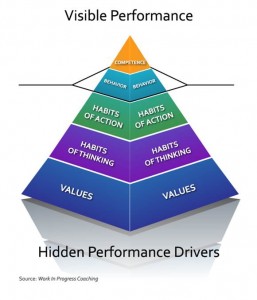Being an adult dedicated to helping people access their potential, be values-driven and experience an uncommon sense of satisfaction and success, I’m curious as to how folks wind up where they do and how they navigated the path to get there.
 Being a child of the 60’s dedicated to looking good, I followed the female collegiate common sense of putting iodine in the baby lotion to speed up the tanning process and added aluminum reflector for good measure.
Being a child of the 60’s dedicated to looking good, I followed the female collegiate common sense of putting iodine in the baby lotion to speed up the tanning process and added aluminum reflector for good measure.
Combining these two dedications, I seized the opportunity to ask “So, how did you decide to be a dermatologist?” during my annual preventative look-see. (I’m fine, BTW, despite the baby oil.)
One doctor’s path
 Even though his residency exposed him to different specialties – ER, surgery, pediatrics, podiatry, internal medicine, etc.), “toward the end, I didn’t know what I wanted to specialize in. The thought crossed my mind that being a doctor was something I wouldn’t do after all. The education and experience was wonderful and I’d find some other profession.”
Even though his residency exposed him to different specialties – ER, surgery, pediatrics, podiatry, internal medicine, etc.), “toward the end, I didn’t know what I wanted to specialize in. The thought crossed my mind that being a doctor was something I wouldn’t do after all. The education and experience was wonderful and I’d find some other profession.”
“During my last month of residency, I could choose anything. I didn’t know about dermatology, so that’s what I signed up for. Working with dermatologists was very different. The difference wasn’t so much about what they practiced – it was about what they talked about outside of their job. Surgeons and cardiac specialists seemed to talk more about divorce, being burned out, and chanted “I can’t wait until I retire”. Dermatologists were happy. They talked about their families, hobbies and their life. I wanted a profession that would let me have a family life, pursue other interests and not be on call 24/7. Being a dermatologist sounded like the kind of medicine I wanted to practice.
“I learned early on that I had great visual memory. Once I saw something, I remembered it. That was a great ability to have because dermatology is mostly about being able to recognize stuff on the surface. I loved the fact that I could walk into the patient’s room and literally see the problem. No exploratory surgery necessary. I know that used to bug the interns who had to run multiple tests to rule stuff out or in. Me, I just looked. Plus, in this specialty, I could treat a wide range of people, men and women, all ages, not have to only be a heart surgeon. I liked the variety.
“It was tough at age 24 to resist other people telling me to be a surgeon. Now, when I mentor med students, I tell them: Do not let anyone tell you what to practice – you have to choose what will work for you.”
Values influence our path
 As he told me his story, I could hear what he valued, what was important to him, underneath the surface. The values I heard are not the kind of values that first come to mind for most people –things like, family, relationships, health.
As he told me his story, I could hear what he valued, what was important to him, underneath the surface. The values I heard are not the kind of values that first come to mind for most people –things like, family, relationships, health.
Of course, family, relationships, health are important. I consider these expressions of another set of values, deep within, that are inherently hidden from view. These deeper values are even more powerful because they inform every choice you make and are the key source of your reactions to people and situations, for better or for worse.
Once understood, you can use the values and hidden performance drivers — like learning, self-worth, acceptance, mastery and control – to help you make choices that leverage your strengths, that let you say “no” to something that isn’t aligned with what matters to you, and that support you forming high-quality, highly-effective relationships.
Fortunately, my doctor resisted the common sense to become a surgeon, listened to what really mattered to him, deep inside, under the surface, and found the path and the specialty that perfectly fit his values.
Want to explore your values? Register to receive a free, 7-week series of emails to do just that! You’re gonna love how they may you think! Ready to get your own, personal Values map? Click here and scroll to Values.
Subscribe
Get Camille's latest posts!
